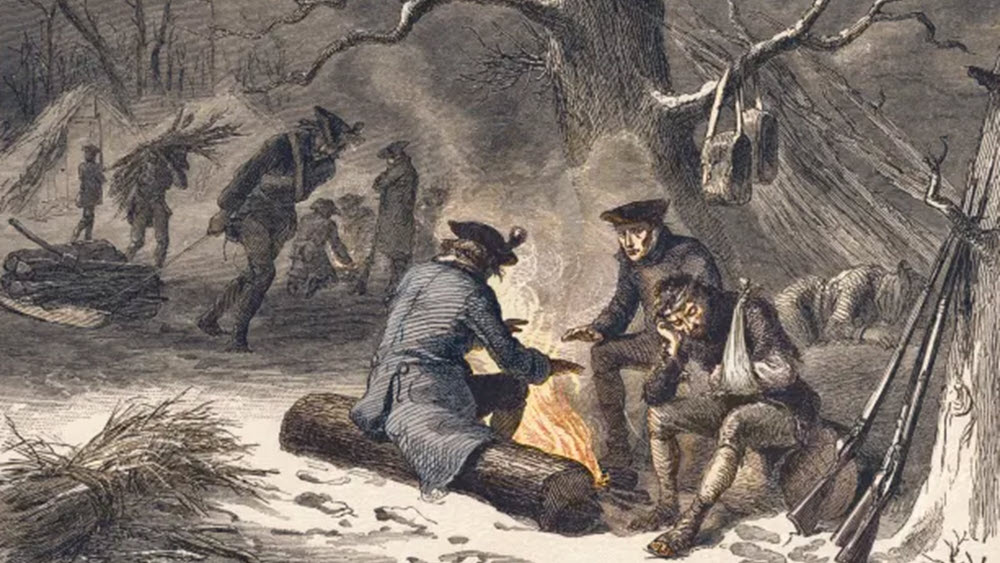Reverse Darwinism and the rise of the nanny state
Visiting colonial-era towns, homes, and battlefields reminded me that we are very different from our independence-seeking forbearers.
One of the things that became incredibly clear during our trip is that America’s forebearers — the ones who fought for liberty — were incredibly tough people. The soldiers’ lives make that very clear: Wool uniforms in both summer and winter, incredibly heavy wooden and steel guns, 100-pound packs, rotten food, and tramping 20-30 miles a day for days through forests and fields, sometimes in the pitch dark, only to fight brutal battles at the end of which they got medical care unmediated by anesthetics or antibiotics. They were made that tough by a lifestyle that was much the same, except for the marching and the battle wounds.
Truly, only the strong survived.
Today, I would guess that most Americans would not have survived that world. After all, 50% of all children died before their 5th birthday. Maternal mortality (pregnancy and delivery) was the leading cause of death for women, and I believe the average lifespan for men was about 45. (Women who survived childbirth lived longer than men.) Disease, infection, and starvation were omnipresent. As Hobbes said, life was “Solitary, poor, nasty, brutish, and short.”
We, on the other hand, have endless access to edible food and drinkable water. Almost all of us survived childhood and, despite what COVID did to American lifespans, most of us confidently expect to live into our 70s. Our bodies are not destroyed by heavy labor and modern medicine. To paraphrase Glenn Reynolds, we live better than the kings of old. All of this, of course, is made possible thanks to fossil fuels. In the old days, hard human and animal labor were the forces that created and transported everything. Now, machines do.
But we are not strong — and we know it. We are utterly dependent on our machine-driven infrastructure. Weak people — and we are — need someone to take care of them. In theory, Adam Smith’s “invisible hand” should be enough because modern commerce does a fine job of spreading goods, services, and transportation wherever they are needed. But again, because we are weak, we don’t trust that invisible hand. We want something we can see and feel, something that promises to care for us…and that is government.
The nanny state would have been viewed with horror and, possibly, laughter in a premodern era. After all, America thrived thanks to Britain’s “benign neglected” in the early colonial era. Now, though, in a sort-of reverse Darwinism (the weak survive, not just the survive), people gratefully turn to a government when it makes the invariably false promise that it will care for all of us.

